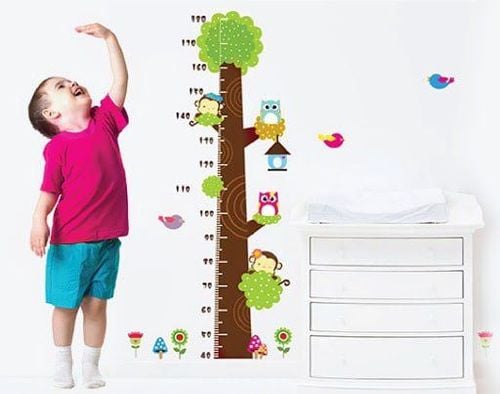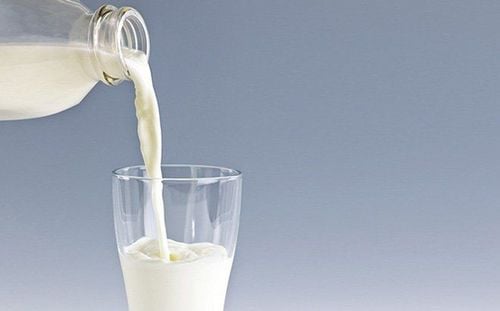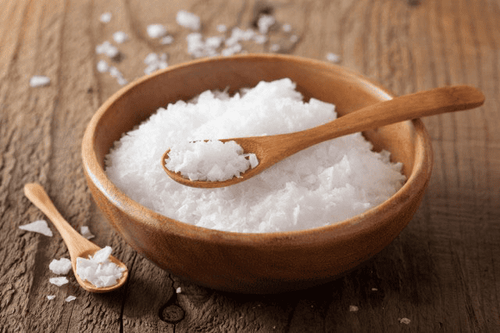This is an automatically translated article.
Toddlers and preschoolers are growing rapidly and dynamically so their energy needs are high relative to their body size. These baby foods provide good protein, vitamins and minerals to support healthy growth and development. Children's diets should be chosen from the four main food groups. At the same time, children should be encouraged to adopt healthy eating habits.
1. Nutritional needs for toddlers and preschoolers
The dietary requirements of toddlers and preschoolers are different from older children. Preschool children are growing rapidly and are active, so their energy needs are high relative to their body size. They may even require a food that combines high energy and nutrient density, particularly with regard to protein, vitamin and mineral content.
Although the diets of children over 5 years of age are recommended to follow the Eatwell guideline model. These healthy eating guidelines are not intended to be exhaustive for preschool children. Low-fat and high-fiber diets can be too cumbersome and not provide enough energy for young children. However, it is recommended that preschool children (ages 2 to 5) begin to adopt some of the principles of the Eatwell Guidelines and should encourage a healthy family approach to diet and lifestyle, as dietary preferences are often established during this early stage of life.
Preschool children need nutrient-rich foods that provide enough protein, vitamins and minerals to support healthy growth and development. An eating pattern based on small meals and snacks selected from the four main food groups should be encouraged.

Trẻ em trước tuổi đi học cần thức ăn giàu dinh dưỡng để hỗ trợ tăng trưởng và phát triển khỏe mạnh
2. Selected foods in the diet of children under 2 years old
2.1. Bread, rice, potatoes, pasta and other starchy foods These foods provide the energy that is important for growth and functioning, along with many other essential nutrients. Preschool children should be encouraged to consume five servings of starchy foods per day (at least one at each meal and some snacks). Servings can vary according to the age or taste of the child, for example a serving of bread might be 1⁄2-1 medium slices. It is important to encourage your toddler to try a variety of starchy foods. Whole grains can be given now, but should not be given too often as they are bulkier and easier to fill and thus make it harder for young children to meet their energy needs.
2.2. Fruits and vegetables Preschool children and toddlers should be encouraged to eat a variety of fruits and vegetables, aiming for five servings per day. There are no specific official guidelines for servings of fruits and vegetables for young children, but servings should be smaller than for adults. Some examples of suggested serving size ranges are: 1⁄4- 1⁄2 apples, 1⁄2-1 tangerines, 1⁄2-2 tablespoons vegetables (e.g. peas, sweet corn) and 1-4 cherry tomatoes.
2.3. Milk and dairy foods Pre-school children and toddlers should be encouraged to consume milk and dairy products such as cheese, yogurt and dairy as these are particularly good sources of bioavailable calcium. , which is important for bone growth, as well as providing many other nutrients.
Children aged 1-3 years should consume at least 300ml of milk or 3 servings of dairy foods per day. It is better to give whole milk and full-fat dairy products to children under 5 years of age, but from two years of age, semi-skimmed milk can be used if the child is growing well and has a balanced diet. healthy. The government recommends that skim milk and 1% milk are not suitable for children under 5 years of age.

Trẻ từ 1-3 tuổi được khuyến khích tiêu thụ sữa và các sản phẩm từ sữa
2.4. Meat, fish, eggs, beans and non-dairy protein sources It's important for preschoolers and toddlers to get enough foods from this food group to make sure they get enough protein, iron, zinc, vitamin D and vitamin B.
Providing foods or drinks rich in vitamin C (such as fruits, fruit juices and vegetables) along with foods high in protein will help the body absorb iron, which This is especially beneficial for vegetarian diets because iron from plant foods is not as easily absorbed as from animal foods.
2.5. Foods high in fat and/or sugar Preschoolers and toddlers need high-energy, nutrient-dense foods to help them meet their nutritional needs. Whole milk and full-fat dairy foods are usually best at this age. However, foods such as chips, crisps, cakes, cookies, chocolates, and fried foods that are high in fat and sugar/salt should not be given too often, however, to help encourage the habit. Eat well from an early age.
Most young children like sweet foods and drinks and a small amount of sugar in meals is fine. However, it is better not to give sugary foods and drinks in between meals, as this is more likely to cause tooth decay. Dried fruit and fruit juices can also cause rotting if consumed too often, so they are best kept until mealtime.
Food, especially sweet food, should not be used as a reward. This can encourage children to think of sweet foods more positively (and conversely see other foods more negatively) and potentially lead to a greater preference for sweets.
2.6. Salt The recommended maximum daily salt intake for children 1-3 years old is 2 grams (0.8 grams sodium) per day and 3 grams (1.2 grams sodium) per day for children 4-6 years old. Too much salt in the diet can lead to health problems, such as high blood pressure, in later life. Most of the salt in our diet comes from processed or manufactured foods. Foods such as chips, bacon, ham, hot dogs and other meat products, ready meals and prepared sauces can be especially high in salt.

Sử dụng quá nhiều muối để chế biến thực phẩm có thể gây ra các vấn đề về sức khỏe
Tips to reduce salt in your child's meals:
Limit salty snacks, such as crisps, as they encourage increased enjoyment of salty foods. Try to avoid over-processed foods and look for low-salt or low-salt alternatives (such as reduced-salt bread, baked beans, and ready-to-eat meals). Try to buy canned vegetables and beans labeled 'no salt' and canned tuna in water, rather than in brine. Avoid adding salt to food while cooking, or on the table. 2.7. Drinks Milk and water are good beverage options for preschoolers and toddlers. Whole cow's milk is recommended for children over one year of age as it is a good source of many nutrients. Skimmed milk can be introduced gradually after the age of two, as long as the child consumes enough energy and nutrients and is growing satisfactorily. Skim milk or 1% milk is not suitable for children under 5 years old, as it does not provide enough energy and vitamin A for growing children.
Sugary drinks (eg fruit juices, fruit juices, carbonated drinks and flavored milks) can cause tooth decay if taken too often. If offering sweetened beverages, diluted, unsweetened fruit juices are the best option, but should be limited to meals to help protect teeth from erosion. It's best not to give diet drinks because they contain artificial sweeteners, such as saccharin.
To take care of the baby and protect the teeth from decay, the bottle should be stopped after the baby is one year old. Instead, milk and other beverages should be served from a free-flowing cup or mug.
2.8. Vitamin supplements It is recommended that children 6 months to 5 years of age get a supplement containing vitamins A, C and D (in liquid drop form), which is especially important if they are not eating a very varied diet.
For children to be healthy and develop well, it is necessary to have a nutritious diet in terms of quantity and quality balance. If children are not provided with adequate and balanced nutrients, it will lead to diseases of excess or lack of nutrients, which adversely affect the comprehensive development of children in terms of physical, mental and motor skills.
Toddler and school-going period is an extremely important period for children's comprehensive growth. Children who do not eat properly are at risk of micro-mineral deficiencies, causing anorexia, growth retardation, malabsorption, etc. If they notice the above signs, parents should supplement their children with supportive products. The supplement contains lysine, essential micro-minerals and vitamins such as zinc, chromium, selenium, and B vitamins to help fully meet the nutritional needs of children. At the same time, these essential vitamins also support digestion, enhance nutrient absorption, help improve anorexia, and help children eat well.
Parents can learn more:
Signs of zinc deficiency in children
Micronutrient deficiency and failure to gain weight in children
Please regularly visit Vinmec.com website and update useful information to take care of your child. Take care of the baby and the whole family..
Reference source: nutrition.org.uk













